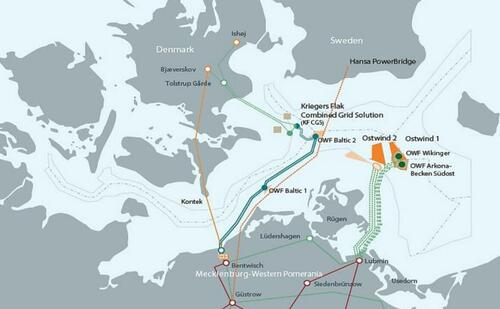By Julianne Geiger of OilPrice.com
In a significant move, the Swedish government has rejected the proposed 700 MW Hansa PowerBridge subsea power connection between Sweden and Germany.
Energy Minister Ebba Busch cited inefficiencies in the German electricity market as the primary reason for the decision, emphasizing that connecting southern Sweden—already facing an electricity production deficit—with Germany could lead to higher prices and increased market instability.
The Hansa PowerBridge project, a collaboration between grid operators Svenska Kraftnät and Germany’s 50Hertz, aimed to facilitate the transfer of renewable energy from the Nordics to Germany. However, the Swedish government raised concerns about the current state of the German power grid. Unlike Sweden, which is divided into four power price zones to manage grid bottlenecks, Germany operates as a single power market zone. This structure has led to significant congestion, particularly in moving power from the wind-rich north to the energy-consuming south, prompting calls for a market split—a move Germany resists due to potential price hikes and industrial impact in its southern regions.
A spokesperson from 50Hertz expressed disappointment over the missed opportunity to strengthen Europe’s internal electricity market but maintained that the Swedish decision would not affect the future security of supply and system stability within the 50Hertz network area.
This development comes against the backdrop of Germany’s broader energy strategy. Recently, EU competition regulators gave informal approval to Germany’s plan to subsidize 10 GW of new natural gas-fired power capacity. This initiative is part of Germany’s effort to stabilize its grid amid a substantial increase in wind and solar power installations. The new gas plants, which are designed to be hydrogen-convertible, are seen as a transitional measure to ensure a stable electricity supply as the country aims for 80% renewable energy by 2030 and carbon neutrality by 2045.
The rejection of the Hansa PowerBridge underscores the complexities and challenges of integrating European energy markets, especially as nations balance renewable energy ambitions with grid stability and market efficiency.
